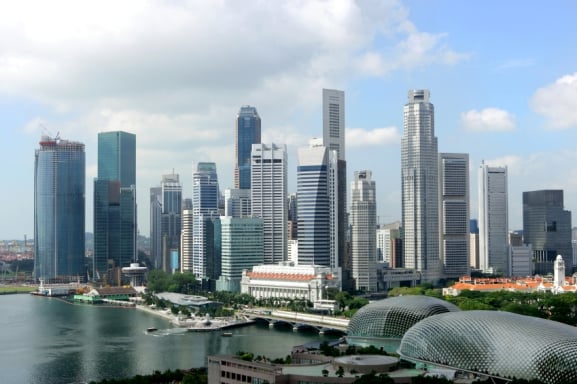City-state has highest percentage of millionaire households; China now No.3 in total number of millionaire households
The ranks of millionaires expanded by 12 percent in 2010, led by Singapore, as gains in financial markets lifted global wealth for a second straight year, the Boston Consulting Group said.
The number of millionaire households increased to about 12.5 million, the Boston-based firm said in a study released today. Singapore millionaires rose by almost 33 percent, while the U.S. had the most $1 million-plus households, with 5.2 million, followed by Japan and China.
“We have seen a growth from 2008 to 2010 that matches the growth from 2005 to 2007,” Peter Damisch, a partner based in the firm's Zurich office and head of the wealth-management practice in Europe, said in a telephone interview. “But the growth from 2008 to 2010 was driven by the recovery of equity markets and much less by the generation of new wealth.”
Global assets under management rose by 8 percent to $121.8 trillion in 2010, beating the study's previous peak of $111.8 trillion in 2007. The U.S. and Canada had the greatest absolute gain, climbing $3.6 trillion to $38.2 trillion and replacing Europe as the richest region. Assets in Asia-Pacific, excluding Japan, rose 17 percent, the fastest among regions.
The study looked at 62 countries representing more than 98 percent of global gross domestic product. Some numbers may differ from those in last year's report because of currency fluctuations and the availability of newer data, said Damisch, a co-author of the report.
More Equities Owned
The increase in wealth last year was mostly a result of strong performance by financial markets, the report said. The MSCI AC World Index, which tracks stocks in developed and emerging markets, returned 13 percent last year, including dividends. North America continued to have the highest proportion of wealth held in stocks, at 44 percent.
Less than 1 percent of households globally were considered millionaires, which is defined as investable assets of more than $1 million, excluding real estate and property such as art. Wealth became more concentrated, with millionaire households controlling 39 percent of the world's assets, up from 37 percent a year earlier, the study said.
Singapore also had the highest proportion of millionaire households at 15.5 percent, followed by Switzerland and Qatar. Saudi Arabia had the highest concentration of ultra-high-net- worth households, which are those with more than $100 million in assets, at 18 per 100,000. Switzerland was second, and Hong Kong was third.
Offshore Wealth
The amount of offshore wealth, defined as assets housed in a country other than the investor's legal residence or tax domicile, increased by $300 billion to $7.8 trillion because of market performance and asset inflows, primarily from emerging markets. The proportion of wealth held offshore declined to 6.4 percent from 6.6 percent in part because of stricter regulations in Europe and North America.
Global wealth will increase at a compound annual rate of almost 6 percent from year-end 2010 through 2015 to about $162 trillion, the study said. Wealth in the Asia-Pacific region, excluding Japan, is expected to rise at almost double the global rate, which will result in the region's share of global wealth increasing to 23 percent in 2015.
The report's authors also looked at the performance of 120 wealth management firms worldwide. Revenue increased by an average of 8.5 percent, and assets under management increased by 7.5 percent, down from 12.8 percent a year earlier.
“Wealth management has been a fabulous business and going forward it's still going to be a very good business, but a little less attractive because of more demanding clients, pricing pressure and increased regulatory costs,” Damisch said.
--Bloomberg News--







